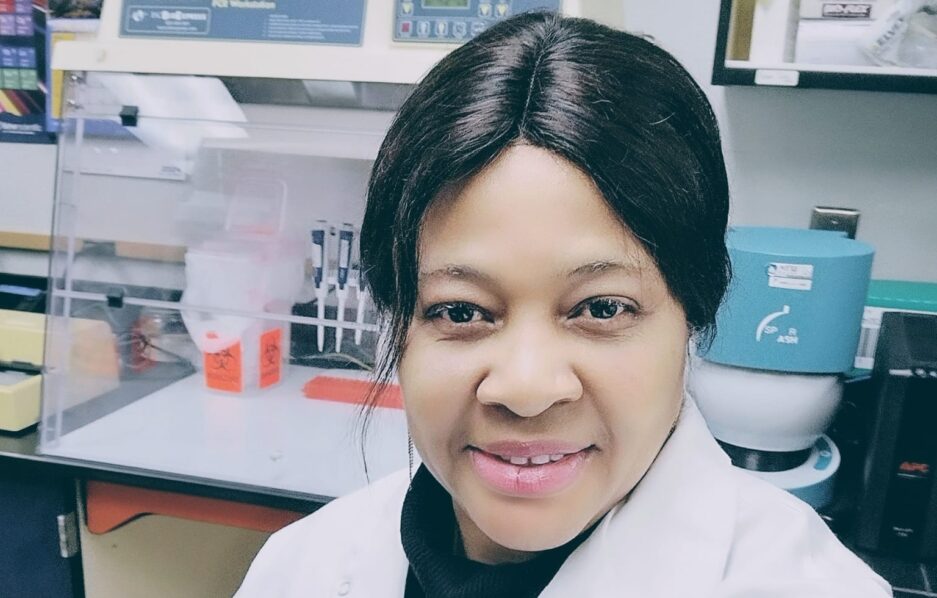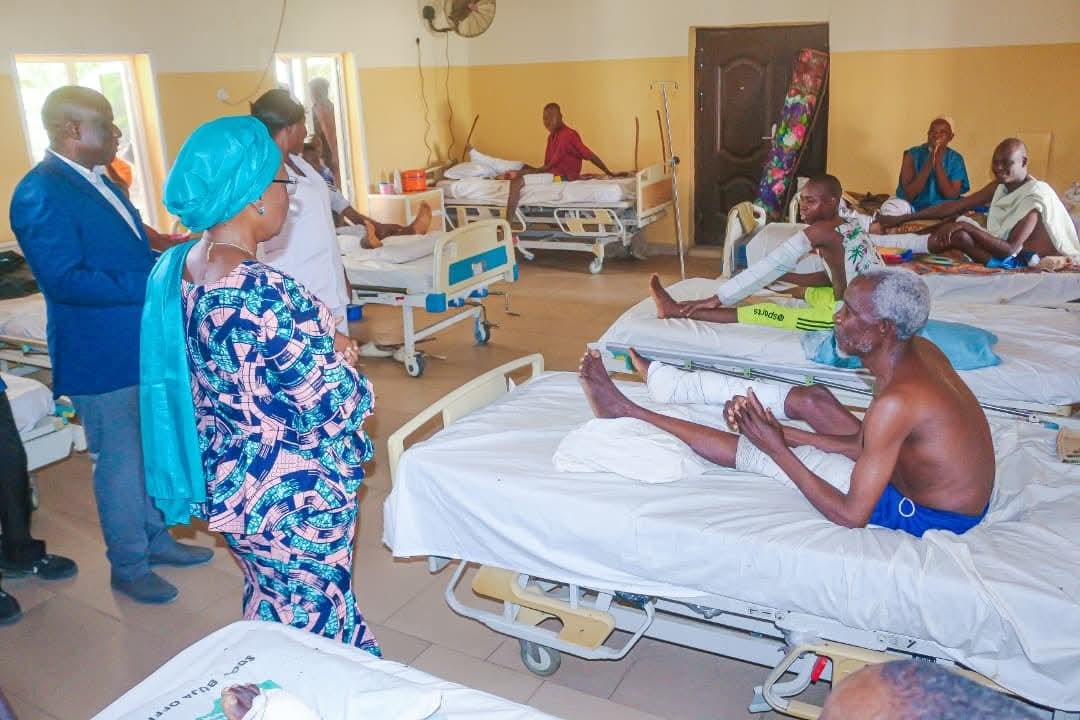
A distinguished Nigerian scientist and biochemist, Dr. Esther Emem Nwanna, has been awarded the prestigious AAUW International Postdoctoral Fellowship.
This grant recognises her significant contributions to the field of biochemistry and supports her groundbreaking research on the molecular mechanism pharmacological and therapeutic potentials of plant-derived products against metabolic disorders in both humans and animals.
Nwanna’s innovative work leverages on various diagnostic tools and models to explore how bioactive compounds from African medicinal plants can be harnessed to develop alternative drug solutions. She proposed that Nigeria’s rich biodiversity of medicinal plants holds the potential to address global health challenges effectively.
Nwanna is currently pioneering research on applying these plant-based extracts in ethno-veterinary medicine, aiming to promote sustainable agriculture in Africa and globally. Her work not only promises to provide natural-based alternative drugs to conventional treatments but also aligns with global efforts to reduce antibiotic use in livestock, thereby combating antimicrobial resistance and supporting One Health initiatives.
Nwanna, who hailed from Ikot-Abasi, Umana Compound in Ukan, Akwa Ibom State, began her educational journey in Ibadan, Oyo State, where she completed her elementary and high school education. She then proceeded for her bachelor’s degree at the Federal University of Technology, Akure (FUTA) in Ondo State, Nigeria, where she earned successive degrees culminating in a Ph.D in Applied Biochemistry. She also rose to a Senior Faculty member in the same institution, shaping future scientists through teaching research and in community development.
The landmark of Nwanna’s research endeavour is her ability to scientifically prove the anti-anemia capacity, antimicrobial, and gut health functions of the leafy extracts of the fluted pumpkin (Telfairia occidentalis). She has also established the anti-diabetes hepatoprotective, neuroprotective, cardioprotective and anticholesteremic properties of diets supplemented with indigenous eggplant (Solanum spp) fruits.
Her research towards products development has demonstrated the efficacy of indigenous food sources rich in bioactive compounds from plant-based products (such as leaves, fruits, seeds, and roots) in reducing the risk of chronic diseases. Her research is of global relevance and aligns with the UN Sustainable Development Goals (SDGs).
Nwanna has published her interdisciplinary research in the field of biochemistry in reputable journals, books and in conference proceedings showcasing her exceptional ability as global researcher with Hirsch index of 21 according to global scientific scholar citations. Her research has been presented globally in several local, international conferences and workshops.
In 2023, her academic excellence earned her an international visibility, she was invited to the United States as a research scholar with the College of Veterinary Medicine Teaching and Research Center (VMTRC), University of California, Davis, USA, in Okello Laboratory where Antimicrobial stewardship and surveillance on dairy cattle is their main objective.
According to the World Health Organisation and Global Antibiotic Research and Development Partnership (GARDP) 2024 global campaign on One Health, there is a critical need to address antibiotic/antimicrobial resistance (AMR) to sustainably level and optimise the health of people, animals, and ecosystems. The overuse of antibiotics in animal healthcare has been linked to AMR, one of the greatest global challenges of the 21st century reported by (WHO).
Mastitis is the most prevalent disease in cattle and is endemic in all dairies (USDA-APHIS, 2016). Mastitis-related economic losses in the United States are projected to reach $2 billion annually.
Mastitis is also associated with multidrug-resistant (MDR) bacteria, which is a major public health concern and a global threat. This has prompted regulatory changes by the United States FDA and the state of California to restrict the use of antimicrobial drugs in veterinary practice.
Her current research focuses on developing innovative, ethnomedicine from selected Nigerian plants to combat antimicrobial-resistant in contagious pathogens (Staphylococcus spp. Streptococcus spp), which cause mastitis in California dairy cattle. The richness and effectiveness of the bioactive components of these plants, along with their long-standing use in ethno-veterinary medicine in Nigeria, have led to the successful treatment of mastitis with certain Nigerian plants.
In addition, Nwanna is also investigating the molecular mechanism to unravel how the multi-bioactive constituents of these plants could serve as inhibitors of the expression of Rpoß and other biofilm formation proteins, which contribute to resistance in mastitis treatment. The outcome of her findings is crucial, as it could have significant practical applications in dairy farming globally, particularly in America. This, however, earned her a highly competitive International Post-doctoral Fellowship award from the American Association of University Women, USA.
In 143 years of providing funding, AAUW has awarded more than $115 million in fellowships, grants and awards to 13,000 recipients from more than 145 countries, according to the organisation. For the 2024–25 academic year, AAUW reportedly awarded more than $6 million in fellowships and grants to roughly 260 scholars, for research projects and programmes promoting education and equity for women and girls.
Kim Churches, Chief Executive officer of AAUW, said, “We are honoured to provide the resources they need to excel in their academic work – and to ultimately make a difference in the world.”
Nwanna also developed silver nanoparticles extract from Editan (Lasianthera africana) and Utazi (Gongronema latifolium), which has proven efficacy as inhibitors of resistant genes in mastitis pathogens preclinically. This finding garnered significant attention at the 9th Annual Post-Doctorate Research Symposium in April, 2024 at the University of California, Davis, United States.
Nwanna is a member of different professional and distinguished organisations, including the American Society of Biochemistry and Molecular Biology, the Academic Society of Functional Foods and Bioactive Compounds (ASFFBC) United States, the American Association of University Women, the Organisation for Women in Science in the Developing World (OWSD) Italy/Nigeria chapter, Nigerian Women in STEM, the Nigerian Society of Biochemistry and Molecular Biology (NSBMB), the Society for Medicinal Plants and Economic Development South Africa (SOMPED), the Royal Society of Tropical Medicine and Hygiene United Kingdom, the Nigeria Young Academy, and the Nigeria Academy of Science. She has served in various functional roles, working groups, outreach programmes, and mentorship activities within these organisations. Additionally, she is an editor and reviewer for several reputable journals.
She has been invited as a speaker in Functional Food Conference hosted at Harvard Medical School in Boston, Massachusetts, United States, and Royal Academy of Engineering event in Madagascar. She has received several scientific awards, including the Award of Excellence for Women in Science as a Distinguished Scientist in Biochemistry. She has also secured academic and research grants from renowned bodies such as ICGEB, Italy, the Royal Academy of Engineering in the United Kingdom, the International Development Research Centre (IDRC) in Canada, and the National Research Fund TETFund in Nigeria.
Through her scholarly pursuits and advocacy, Nwanna remains committed to advancing human capital development, improving health outcomes, and supporting global development, particularly within STEM fields.






